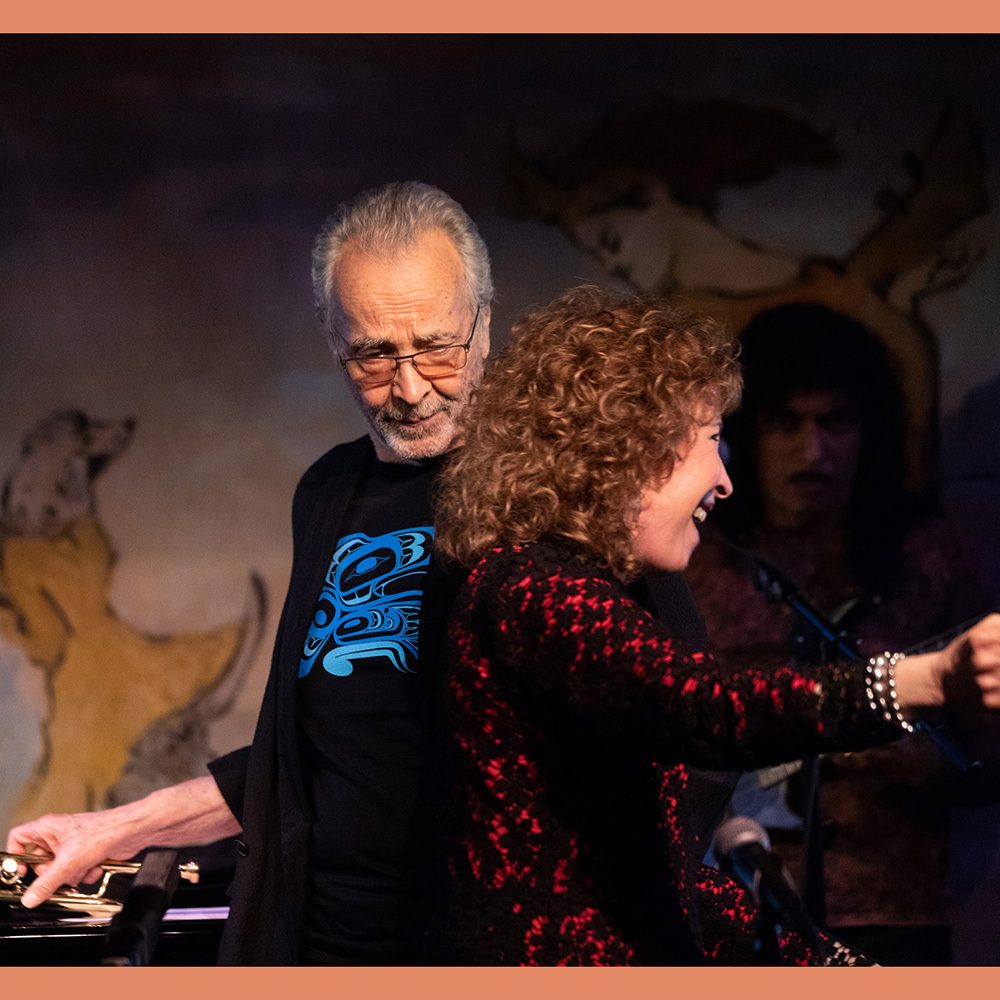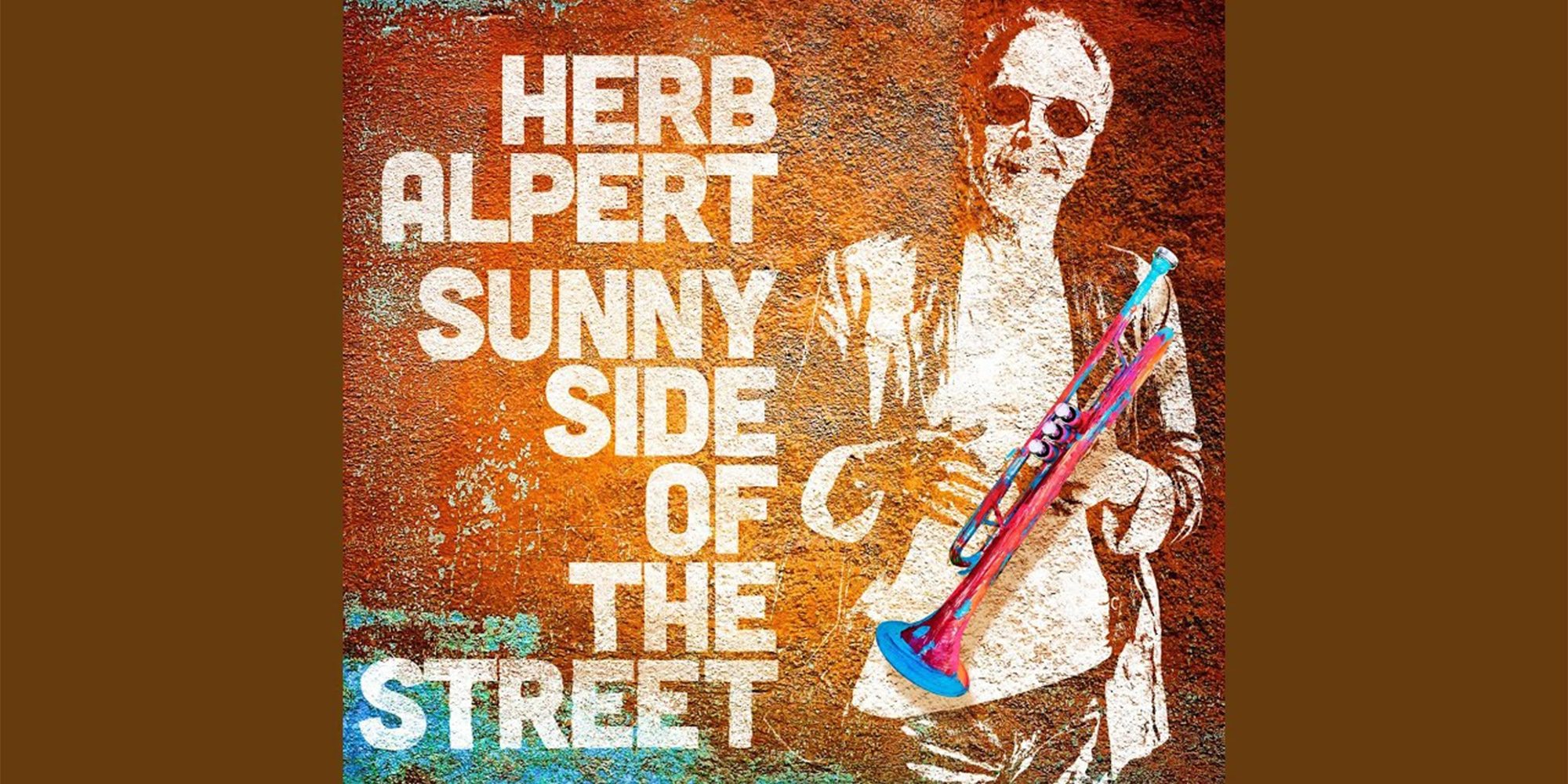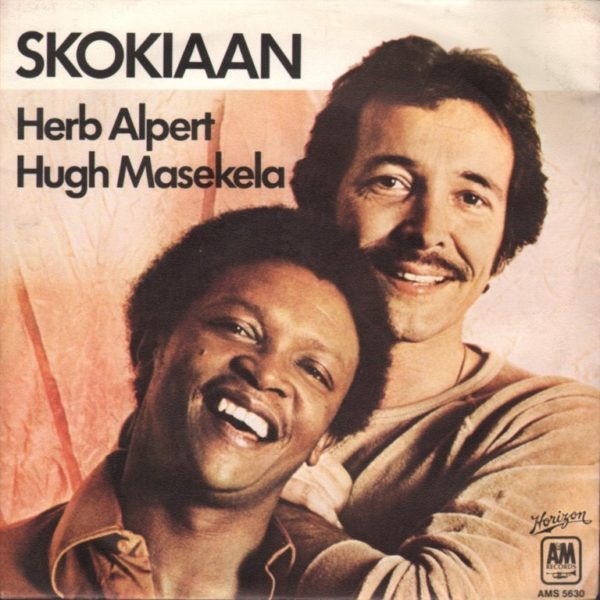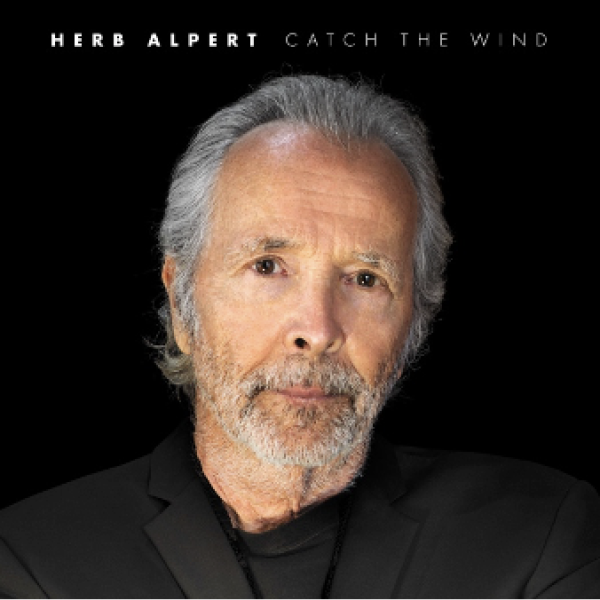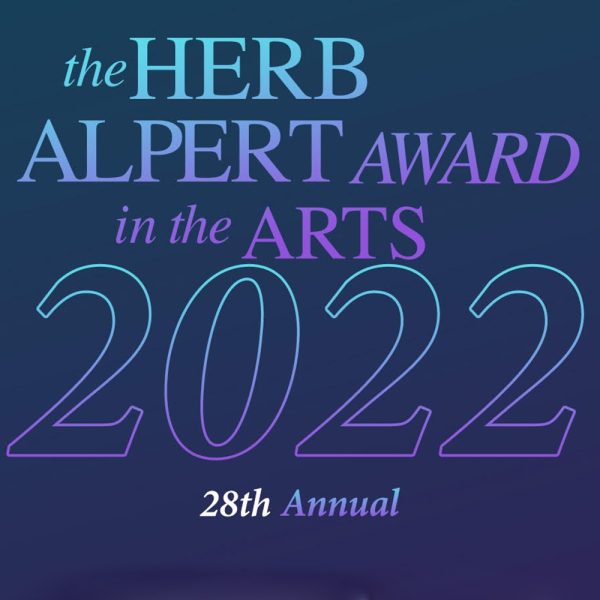Herb Alpert, at age 87, has just released, by our count, his 45th album, Sunny Side of the Street. It’s an upbeat set of songs, mostly new originals, with some lovely ballads along the way. Alpert is also back on the road with his wife Lani Hall and their trio. These are their first shows since the pandemic, and Alpert is over the moon about it. Hall, not so much. Afropop’s Banning Eyre spoke with Alpert via Zoom from his home in Los Angeles about the album and the road. Here’s their conversation.
Banning Eyre: Thanks for speaking with me. I much appreciate it.
Herb Alpert: Hey man, that's what I do for a living.
Speaking of what you do for a living, how does it feel to be back on the road again?
Oh yeah. We just got back from a series. Luckily we didn't play in Florida. But in December we are playing in Florida. Looks like not a nice situation down there after hurricane Ian. I have friends in Sarasota who just missed it. Not a nice situation. So what have you been doing lately?
Me? I just played my first solo guitar concert in a long time. That was interesting. And we're working away producing new content for Afropop. I’ve been doing some mentoring of radio producers, trying to bring in more youth and diversity to the production team.
You guitar players. You are open.
We gotta be. Say, I did not see Café Carlyle in New York on your itinerary. Are you giving that venue a break?
No, we'll play there next year. We’ll play there for two weeks. We always have a good time. They treat us nicely. I like the crowd. It's different than the L.A. crowd. West coast crowds come in $300 torn jeans. In New York you see a suit and tie.
Yes, well we're a little more formal in New York. So I've been listening to the new album. It seems to me you're putting out more albums than you have an a while. Is that true?
Not really. I pretty much do an album a year at least.
Maybe I missed a few.
Well, that's why I haven't spoken to you.

When we talked about your last album, Catch the Wind, you had been recording remotely. Is that still your mode?
We still do Zoom. You know, with ones and zeros these days, you can record with an artist in any part of the world. I put the trumpet on it, just a trumpet track, but it's all time coded, so it goes immediately into the mix. You can do it in a very conscientious way so you can't tell whether it happened live or not. It's the old story. “Is it live or Memorex?”
I love the way this album begins and ends with just you and the piano player. That's Bill Cantos, right?
Yes. That's Bill.
It’s a very intimate sound. And then, in between those bookends, this album has what I would call mood swings. It's got a lot of songs that are really happy and fun. I hear a kind of ‘60s vibe and some of them. But then intersperse those with much more reflective, even melancholy, tunes. “I Remember You,” “Time After Time,” “Just a Dream.” Did you have an overall concept for this album when you started out?
No. I never did have a concept. I mean I did in the ‘60s with Whipped Cream for example. They were all food titles. But right now, at this particular time in my life, I just pick songs that I like to play, and I try to play an old song in a way that maybe hasn't been heard quite that way before. I make music for myself. I know this sounds strange, but it's not important to me that you like the record. I don't go that way. I have to like the record because I have to put my stamp of approval on it. And when I do, I put it out. If someone else likes it, fabulous. If not, still fabulous.
I relate to that. That's a beautiful way to go. That’s how you make great art.
Jazz is very spontaneous. There are two types of jazz players nowadays. They are the ones that are schooled. They know all the chords. They know all the modes. They know how to manipulate chord changes and harmony. And then there are those other players that are just looking for the right thing to play. These other guys know it's the right thing to play because they can scope it out with all the elements that are available to them. But then there's the Miles Davises and the Coltranes and the Charlie Parkers. They just threw it all to the wind.
Right. Learn all that stuff, then forget it and just play.
Yeah. I remember years ago when I saw that group of Miles Davis with Coltrane and Cannonball, the heavyweight guys. This was on a Friday night. I called all my friends – all my friends— well, the ones I knew loved jazz. I said, “You got to come hear this thing. It’s fantastic.” So the next night we went and it didn't work. Miles played a couple of notes and walked off into the kitchen. It was just a whole other thing. Jazz is very ephemeral. You never know what's going to happen. It's of the moment. It is what it is.
You caught a great moment there that first night.
If you think too much about music or the arts in general, you miss it. Music is the mystery. That's what makes it so engaging to listen to. It's hard to identify that. The closest I've come to it… I played with Louis Armstrong one night on a TV show.
Tell me about that.
Well, it was an eye-opener for me because I finally got it. Louis’s goodness, Louis’s personality, came right through the instrument. That was the thing. This is what that trumpet teacher was trying to tell me years back.
You are the instrument.
You are the instrument. The trumpet is just a piece of plumbing. It just amplifies the sound. So once you get a hold of that concept, it's a whole different idea. What makes it wonderful is to experience what you're feeling. Whether it's heavy duty bebop or just a pop song. It really doesn't matter. Because as Duke Ellington said, there's just good and bad music. But that's all personal.
The first time I listened to this album, I didn't have the notes. I was just looking at the titles and listening. And I kept thinking I was hearing songs that were composed back in the day, back in the ‘60s. I figured I didn't know a lot of songs from that era because I was so focused on rock 'n' roll. But now I look at the notes and realize that most of these are songs that you've written recently with Bill Cantos and Jeff Lorber and others. It's interesting to me that the sound was taking me back that way. Does that tell you anything?
Hmmm. Well, I don't think like that. But that's interesting. The song I did, “I Remember You,” is from that era. It was a very famous song on the islands of Hawaii. With the Tijuana Brass I played at the HIC which is the big arena there. And after the concert I had my horn tucked under my arm and I went to see Don Ho.
I remember him. “Tiny Bubbles.”
Well, the guy who wrote “Tiny Bubbles” also wrote “I Remember You.” His name was Kui Lee. I spent a little time with Kui, just gabbing one day. But this kid died when he was about 32 years old. He had a brain tumor. But he wrote this beautiful song that I heard at this concert when I went to see Don Ho. He started playing that song. And I walked up on stage with my horn. Of course I’d had a couple of drinks before that.
To get your courage up.
Yeah. But it was a moment for me. And I've always loved that song. I was touched by the fact that this guy wrote this song. He wrote a lot of other songs in addition to “Tiny Bubbles.” It's a beautiful song and I wanted to express my feelings about it and and the lyric. I try to put the lyrics through the trumpet.
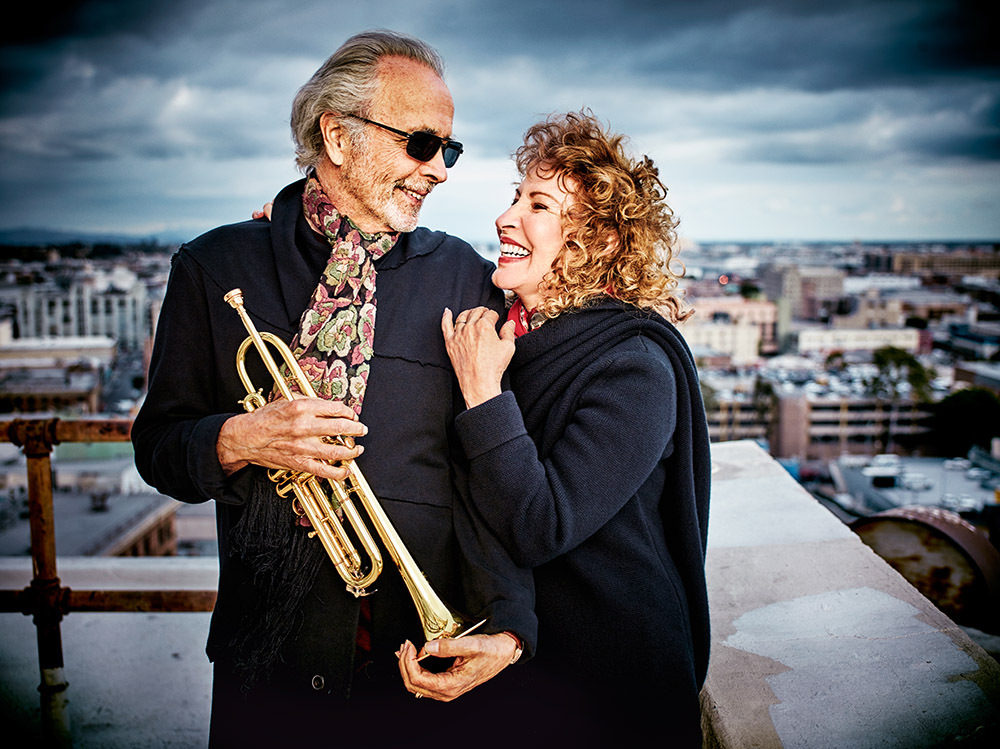
I hear that. And you have Lani making a couple of vocal cameos on the album.
Yes.
Tell me about the song that opens the album, a very beautiful melody, “Childhood.”
Well, that's something that Bill started, Bill Cantos. He played fragments of something. I liked it a lot. I added a melody along with Lani to that song. For some reason it had no title. But it reminded me of my childhood. It's kind of an innocent song. It's very transparent. So it became “Childhood.”
And the very last song is just with you and Bill. It’s the title track for the album, “Sunny Side of the Street.”
Yeah. It was just me and him. We just left it as it is. We didn't change anything or try to make it super perfect.
It's plaintive and sweet.
Well, that's what I love about playing live. I always look forward to it, just to just express myself with the musicians behind me.
Are you working with the same three musicians we have seen in the past?
Well, unfortunately the drummer we had for 13 years committed suicide.
Oh, man. That’s terrible.
Well, it would be a shocker for anyone. But it was sure a shocker for us. He was great. We have a new drummer and he's also great. It's a different time.
I'm sorry to hear that. Let me ask you about the single for this album. Now, this is one that feels very contemporary to me even though it is in fact a song from the ‘60s, “Pata Pata.” I think you have an original take on it. I see you worked with the same Dutch fellow who you did those Beatles songs with on the previous album.
Yes. That’s Jochem van der Saag. He's real good. He’s a good friend of mine, very musical. I know that song from when I played with Hugh Masekela. As you know, we did a couple of albums together. And he was married to Miriam Makeba, who wrote that song. They had some type of split. I never really pushed him on it, and he never recorded this song, maybe because of whatever happened between the two of them.
Well, just about everybody else has recorded it.
I did that in honor of Hugh. I loved the guy. He was a great musician, a very interesting musician, definitely coming from another point of view.
Absolutely. That song is fascinating to me because there are so many cool versions of it. There is a Ugandan-American singer named Somi, a beautiful jazz singer, and she did a tribute album to Miriam Makeba last year. Her version of this song is darker, which is interesting because the song is actually about men putting their hands on women. Miriam was being playful about it, pata pata. But Somi took it in a more contemporary direction. And then you have Angelique Kidjo with a fabulous take on the song. But I like your version. It's really driving. There's a low end sound that runs through it, kind of a backbone of the song. What is that?
It’s a combination of keyboard, guitars and bass. I'd have to listen to it again to be more specific. But there's a mess of sounds in there.
I'm curious as to why you picked that as the single?
I don't pick any of the songs to be singles. My nephew Randy “Badass” Alpert picked it. Here's my manager along with Zander Smith. He kind of organizes my musical stuff after I finish an album. He's the one who plans when they'll be released. He sent the album out to various people that help to promote it. He gets the feedback and makes those decisions. I'm kind of out of that loop. It doesn't really interest me, the mechanics of how you get things promoted.
You make the music and those guys take it from there.
Pretty much. But you know, some kid on TikTok took a song from 50 years ago with the Tijuana Brass, from the Whipped Cream album. “Ladyfingers.” It was written by Toots Thielemans. I'm sure you know him.
I do. And you mentioned last time we spoke that this song had become a hit on TikTok.
Well, because of that so many people picked it up, picked it up. It was traveling around TikTok and all of a sudden that song went viral. Check this out. Two weeks ago, I found out that this song, “Ladyfingers,” has had in the conglomerate between Spotify and iTunes and Amazon and all the others, 100 million streams. This one song. That is mind-boggling for me, man. I started this business with a wire recorder.
You have seen it all. And that is incredible. It's not exactly the catchiest song on the album. It's kind of a sweet ballad. They didn't go for “A Taste of Honey.”
It's crazy what could happen. Since you're a quasi-jazz fan, let me tell you. Here’s my get-off on that. It catapulted the album sales. Miles Davis’ Kind of Blue is number one. Whipped Cream and Other Delights was number two, and Coltrane was number three.
Well, sit back and enjoy that. And you have the TikTok kids to thank for that?
Absolutely.
Let me ask you about another song you wrote with Jeff Lorber, “Sneaky Pete.” Were you thinking of the TV show?
No. It was just a title that came to me.
How do you come up with names for instrumental songs. I struggle with that myself. Sometimes there's no obvious thing to call it, but it needs a name, right?
My wife has good ideas. When I was doing this album with Juan Carlos from Spain. He wrote one song called “Push Pull.” And Juan Carlos, you know, he spoke English but he didn’t have the whole language under total control. And I said, “How did you come up with this title?” And he said, “Man, I go to the bathroom and the door says ‘push.’ I come out and it says ‘pull.’” [Laughs]
Inspiration is everywhere if you know how to look for it. What about “Tickle Time.” That's another one that has a peppy, clean sound that takes me back to your earlier days.
This is just a fun song. Jeff Lorber sends me a groove and I start playing a melody over it, and he compliments it and one thing leads to another until we get a total song.
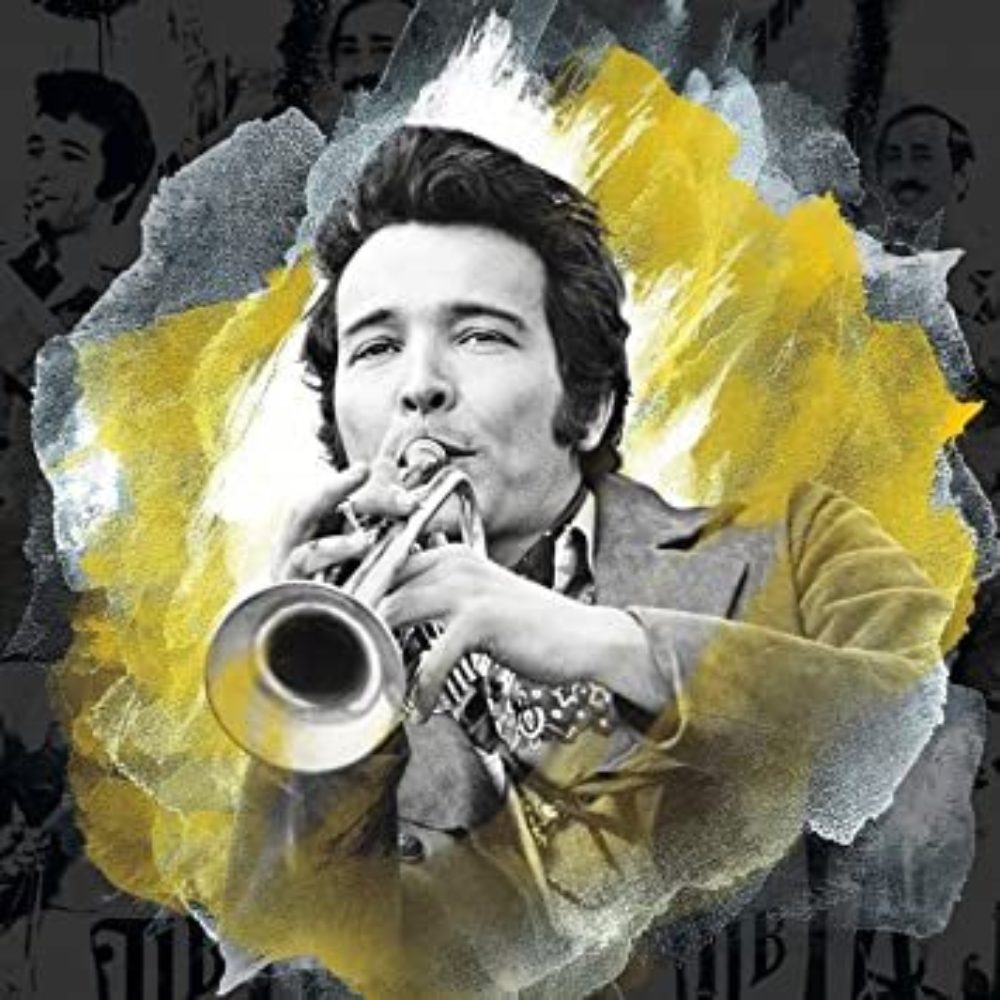
Do these songs together pretty quickly?
I don't struggle with songs. If it doesn't come together, I drop it, unless it really interests me or it’s something fun for me to play. It doesn't have to be a light ditty to be fun.
So you're just constantly working on new things and when it's enough to make an album, it goes out.
That's the way I work. Keeps me alive. I hate to say it, but that's the case.
I bet you get asked to guest on other peoples’ albums quite a bit.
Oh yeah. All the time.
Any particular interesting ones lately?
Not really. A lot of these artists need a little boost and a figure my name will help them along.
I'm sure it does. So you guys are happy to be back on the road. The last time we spoke, Lani was nervous about that. She was being protective. Are you feeling pretty good about it now? Pretty safe?
No. Lani still has that same feeling. We try to be cautious. We travel with around 13 people. We make sure they're tested every other day. And they don't do anything foolish while we're on the road. But I love the feeling. We just got back from some really great concerts. And I say this humbly, but there's something that we're doing that people like. These are sold-out concerts. These are people who are not there because I'm taking my last tour. I don't know if it will be that. I hope not. There's something about my music that resonates with them. And it's not the usual, "Yeah, that’s great.” It's deeper than that. It makes people feel good. When you're delving into the art world, or listening to music, it's this very moment in your whole life. Listening to music that makes you feel good, you're not thinking about floods or wars or craziness. You just focus on that, and that's a deep meditation. And I think that because of the type of music I make, they get it. It's something positive. That's what I'm trying to do.
I know you get soul satisfaction out of that. I've seen it. You know, speaking of farewell tours, I don't usually go to big concerts. Most of what we cover is in small theaters and clubs. But I went to Elton John’s final tour at Met Life Stadium with 20,000 fans. I was a big fan when I was a kid, and I figured this was my chance to see the guy. I never had. It was very moving. There was one song he played that I bet you would do an awesome version of. Do you know the song “Mona Lisas and Mad Hatters”? It's beautiful ballad, a love song to New York.
I don’t know it.
I’ll send it to you. I think you’ll enjoy it. Meanwhile, I hope this is not your last tour. I think you’ve got a few more in you. I'll be looking for you at the Carlyle when you come around.
All right. Cool man. Good luck and stay safe.
Thanks. And give our best to Lani.
And don't forget to practice today.
Thanks for that.
I don’t get this. Contact? Contract?
